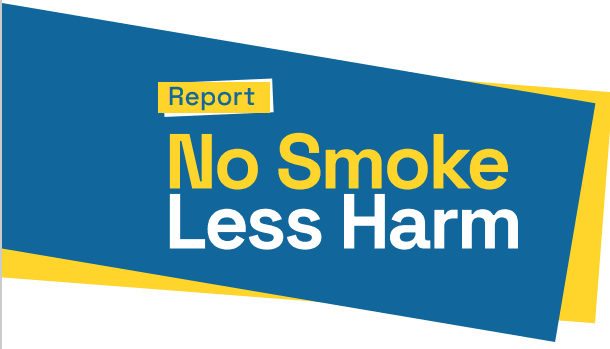
Sweden is on track to become the first nation to achieve smoke-free status, with its dramatic decline in cigarette smoking attributed to a shift toward smokeless products, according to a new report.
The Public Health Agency of Sweden said that only 5.6 percent of Swedish adults smoked cigarettes in 2022, down from 49 percent of men in 1960. It will likely become the first to achieve smoke-free status, with a smoking rate below 5 percent.
This decline is linked to a rise in the use of smokeless tobacco products like snus, oral nicotine pouches, and heated tobacco products. ZYN, the most popular oral nicotine pouch in the US, originated from Sweden.
The report, titled "No Smoke Less Harm" by the Stockholm-based advocacy group Smoke Free Sweden, says that combustible cigarettes, not nicotine itself, are the primary cause of smoking-related illnesses.

While nearly a quarter of Swedish adults still use nicotine daily, similar to the European average, Sweden has significantly lower rates of tobacco-related deaths (44% lower) and cancers (41% lower) compared to the rest of the European Union.
Among men, Sweden has 52 percent fewer tobacco-related male deaths than Poland and 57 percent fewer than Romania. For lung cancer, Sweden has significantly fewer deaths than France, Germany, Italy, and Poland.
Dr. Karl Fagerström, a public health expert who contributed to the report, said, "the Swedish experience underscores the importance of addressing public misconceptions about nicotine to develop health policies that better protect and inform consumers."
"While nicotine is addictive, it does not cause the serious diseases associated with smoking," Dr. Fagerström said. "Our findings support a shift in focus from cessation to substitution with less harmful alternatives for those unable to quit completely."
The report credits the low rate of smoking-related diseases to Swedes' preference for alternative smokeless products. Smoke Free Sweden hopes other countries will follow Sweden's lead and for policymakers to acknowledge the potential of THR, regulate nicotine products based on risk profiles, and encourage healthcare professionals to embrace THR.
"Nicotine is addictive, but it doesn't cause the serious diseases associated with smoking," Dr. Fagerström said. "Our findings support a shift in focus from cessation to substitution with less harmful alternatives for those unable to quit completely."
Dr. Scott Gottlieb, a former commissioner of the U.S. Food and Drug Administration, has also recognized the potential benefits of smoke-free products. “If we can convert more currently addicted adult smokers onto these modified risk products (ZYN nicotine pouches) that don’t have all the harms associated with combustion, we can achieve a substantial net public health benefit,” Dr. Gottlieb said in a recent interview over CNBC.
The Swedish report concludes that high nicotine use does not necessarily lead to high rates of health problems, suggesting that smokeless alternatives pose a lower health risk than smoking.
It says that while smoking is linked to high rates of death and disease, smokeless alternatives, like snus and oral nicotine pouches, don't pose a similar health risk.
Smoke Free Sweden is a movement that encourages other countries to follow Sweden's lead in tobacco harm reduction.